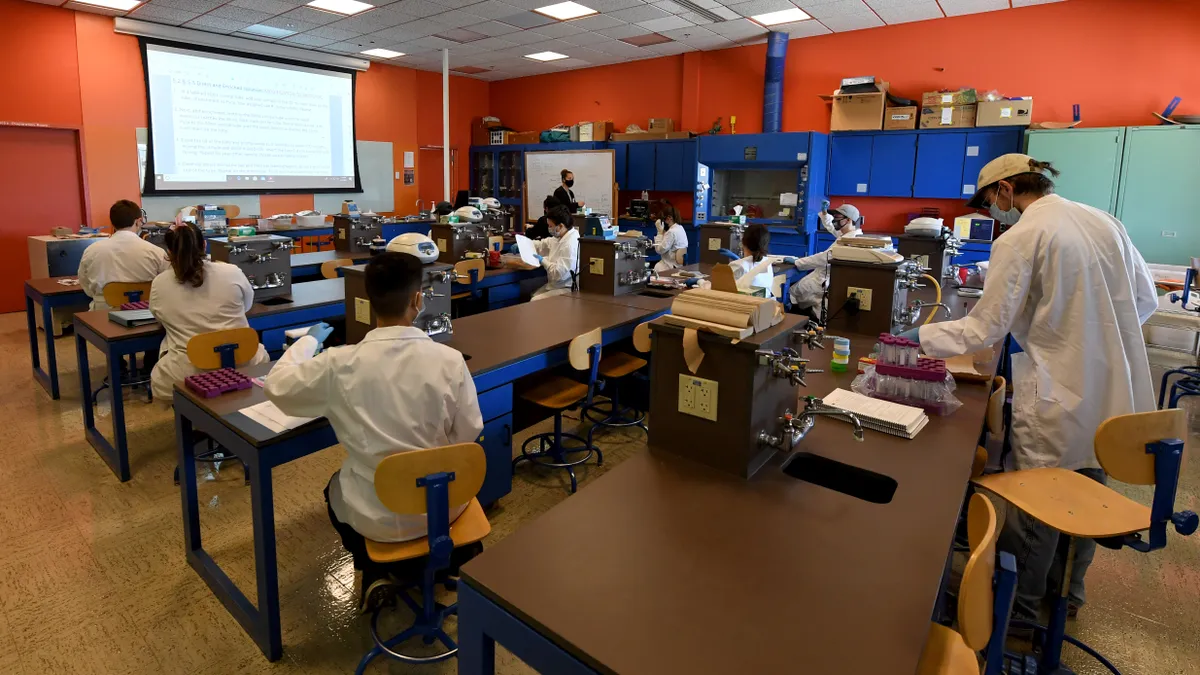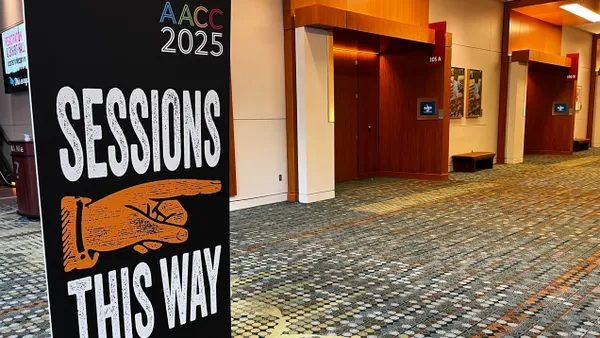Dive Brief:
- Colleges should focus on partnerships, flexibility and innovation in order to set students up for lifelong learning and employment post-graduation, according to a recent report from the Association of Public and Land-grant Universities.
- Many nontraditional students are seeking credentials that take less time to attain than a four-year degree but still improve their prospects in the labor market.
- The report, co-produced by the Coalition of Urban Serving Universities, found that many students need the option to train for short-term job opportunities while earning credit for a longer-term degree. Others have skills from serving in the military, volunteering or starting a business that the report argues should be recognized with college credit.
Dive Insight:
Even before the pandemic, the need for skilled and credentialed workers outpaced what one type of educational institution alone could provide. Learners are facing barriers to success such as lack of adequate transportation, housing, child care and healthcare. The APLU report stressed the importance of colleges coordinating student services across campus and also collaborating with employers, community colleges and workforce boards.
"It can't be done only through community colleges or apprenticeships or company training programs. All hands need to be on deck for this," said Sheila Martin, APLU vice president for economic development and community engagement.
"There are certain areas of higher education that have always had really strong ties to employers — engineering and business schools especially," Martin said. Going forward, she said, colleges should consider partnerships with private businesses for all areas of study.
To provide more flexible programming, the report recommended awarding credit to students for prior learning and also creating pathways to assure a smooth transition between undergraduate and graduate programs.
Innovation examples included strengthening options for experiential learning, skills transparency and personalized education. Diverse learning paths are frequently offered as add-ons, for elective credit or for no credit at all, according to the report. It argues specialized options for students should be treated as the default rather than an afterthought.
The report highlighted specific colleges that showed how focus areas could be improved. Wayne State University, in Michigan, joined a pilot with Microsoft’s 21st Century Jobs, Skills and Employability program in which students can earn low-cost certifications and access free job-seeking tools. A resulting initiative, launched by Microsoft, GitHub and LinkedIn in June 2020, is meant to address the shortage of skilled technology workers and create a talent pipeline to serve the regions around participating colleges.
On the East Coast, Virginia State University offers a Bachelor of Individualized Studies that the report said lets students earn credits via exams, educational experiences in the armed forces or work and life experience.
Martin said a collaborative approach between learning and working is ideal, as it leads to a deeper understanding of course material and makes it easier for students to apply new skills when on the job site.
"If I could redesign higher education, I would have people doing jobs and education simultaneously all the time," Martin said.
Editor's note: This brief has been updated to say that the Coalition of Urban Serving Universities co-produced the report.














